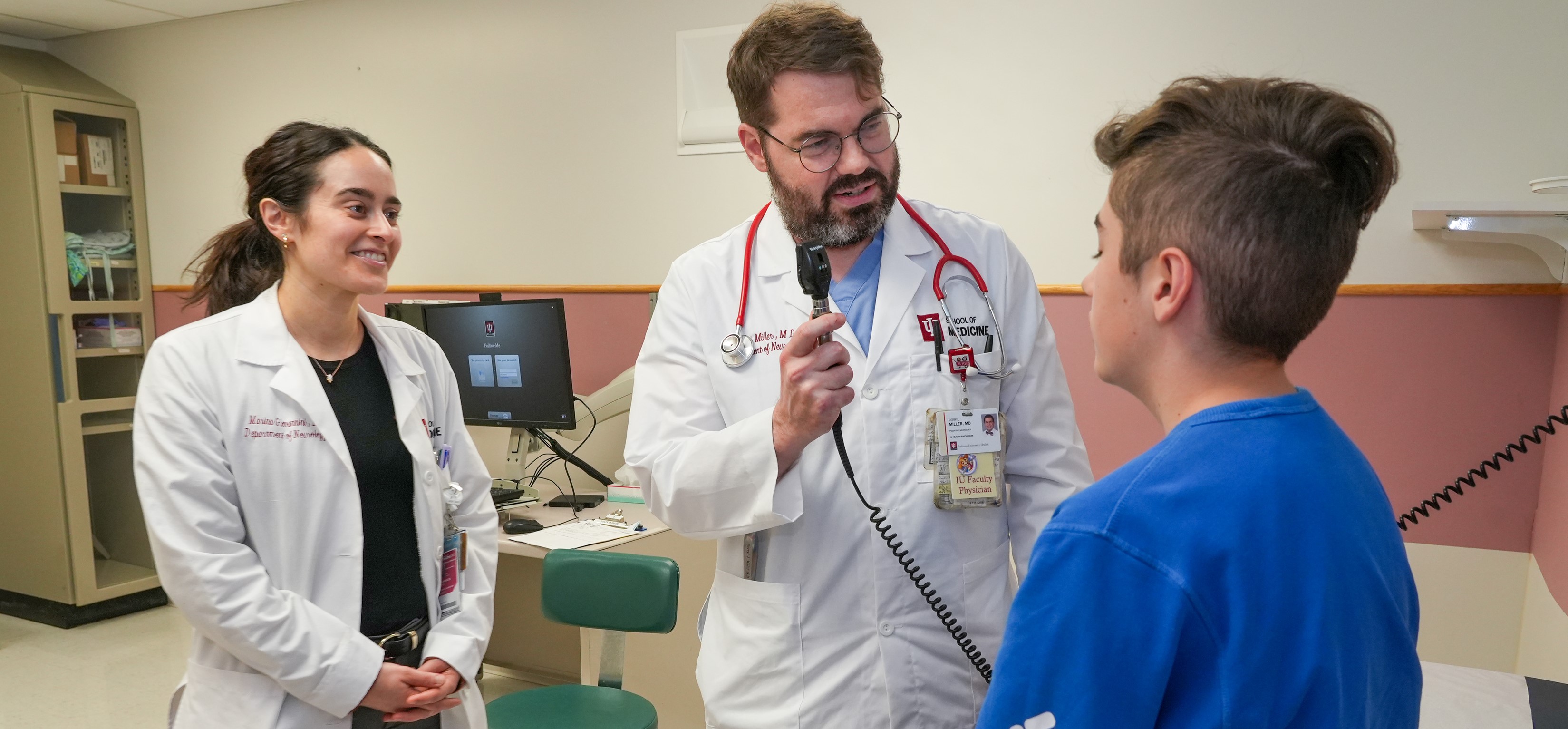The Adult Neurology Residency Program provides residents with the best opportunity to care for patients. Residents are encouraged to pursue original ideas and use their experience in patient care to form questions that can be addressed during lectures and other mentorship opportunities.
The Child Neurology Residency Program focuses on clinical evaluation and management to provide clinical competence in general neurology. This program emphasizes child patients and offers residents an experience to work at Riley Hospital for Children in downtown Indianapolis.





